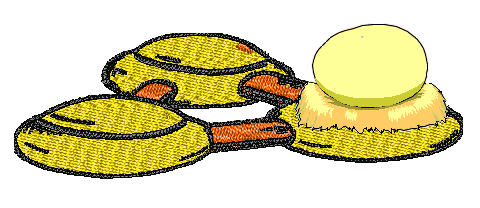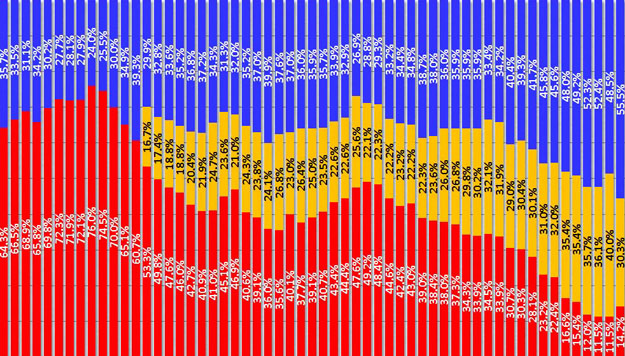...Participants in public policy debates are often insensitive to how much ground they cede when they embrace the nomenclature used by their opponents. My personal bete noire is "free markets" which is actually an oxymoron. Another is "entitlements" which is code for "welfare." Why don’t people who favor programs like Social Security call them “social insurance’? Or “economic stabilizers”?
Or "catch a break programs"? The above quote precedes a guest post on Smith's blog by Robin Broad delving into the history of the term "emerging markets":
Perhaps the first use of the term “emerging” was in fact a positive one (as far as I’m concerned) – coming from the 1955 Bandung Conference, best known for leading to the establishment of the Non-Aligned Movement. At that point, the new “emerging” powers or nations or countries referred to former colonies gaining independence. Indonesian President Sukarno’s vision was that these “new emerging forces” would rival the colonial forces at places like the United Nations.
But what a difference almost three decades makes. Jump ahead to 1981 and the onset of the reign of free-market fundamentalism – when a man named Antoine van Agtmael coined the term “emerging market economy” as an alternative to “developing country.” And van Agtmael’s perch?: Deputy director of the capital markets department of the International Finance Corporation, the private-sector arm of the World Bank Group in Washington, D.C.
A side note: “Emerging markets” also was used by some after the collapse of the Soviet Union to refer to the “2nd world,” the former Soviet republics and satellites that were said to be “emerging” from socialism or communism to private-sector capitalism. (These are now more commonly referred to as “transition” economies.)
Back to the main plot: In the mid-1990s, van Agtmael’s “emerging markets” became even more defined and popularized – thanks to Bill Clinton’s activist Commerce Department under the leadership of Ron Brown. The term is typically associated with Jeffrey Garten, Brown’s Undersecretary of Commerce, and author of a speech (and later a book) entitled “The Big Emerging Markets.” The U.S. government’s concern wasn’t the poor and marginalized or poverty reduction in these poorer nations, but rather the roughly 10 countries “with the greatest potential for future export growth” (as Secretary Brown phrased it).
Meaning the growth of sales by US companies to various countries' former colonies. As the US gradually declines to GOP-led banana republic status, multinational capital is discovering new emerging markets in our own impoverished heartland: buyers' markets, that is, for labor, public infrastructure, coal, shale gas, student loans, foreclosed home rentals, etc. A rumored Obama pick for Commerce would certainly abet this trend.



